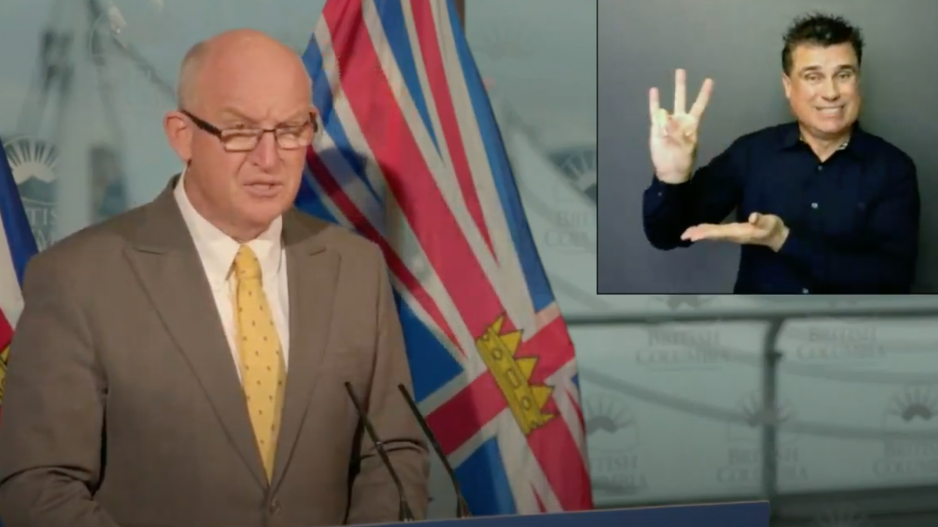Mike Farnworth, Minister of Public Safety and Solicitor General, announced the largest decrease to basic insurance rates in 40 years.
Insurance Corporation of B.C. (ICBC) is applying to the B.C. Utilities Commission for a 20% decrease on basic and optional vehicle insurance as a result of ICBC's new enhanced care coverage. Customers can expect to save up to $400 effective May 1, 2021.
ICBC will also reduce third party liability rates for optional insurance as of February 1, 2021. Farnworth said that once the enhanced care coverage begins in the spring millions of British Columbians will receive a one-time, pro-rated refund.
"Our goal is to leave more money in people's pockets over the longer term," said Farnworth.
Farnworth said he fully expects the independent utilities commission to approve the basic rate applications. In response to questions about what will happen if the commission rejects the applications Nicolas Jimenez, president and CEO at ICBC said that the requests in the basic rate application was a collaborative effort between ICBC’s actuaries and external actuaries with Ernst & Young performing an independent assessment of the assumption made and all parties believe they have made a solid case.
“We’ll put [the application] forward to the commission, the commission will do their review and as the minister said we feel very confident that they’re going to agree with our assessment,” said Jimenez.
The provincial government has also directed ICBC's basic rate application to cover two years instead of one-year. Farnworth says this will help to provide more predictability on lower basic insurance rates until at least early 2023. The basic rate application also outlines how ICBC will contribute to a fund to help ensure rate stability into the future.
Farnworth said beyond premium savings, the enhanced care coverage plan will significantly improve injury and recovery benefits up to a maximum of at least $7.5 million, regardless of fault.
In response to concerns about a backlog of ICBC cases affecting the future affordability of ICBC's new program Farnworth said that those cases had already been factored into to the calculations.
With Attorney General David Eby having perviously called ICBC's finances a "dumpster fire," Farnworth was asked where the money was coming from to support these new insurance premium savings. Farnworth said moving to a no-fault insurance model combined with new legislation to prevent government from taking ICBC profits for general government spending would create the savings necessary. The switch to no-fault alone will save the crown-corporation $1.5 billion in litigation fees.
ICBC is still considering a COVID-19 rebate implemented in other jurisdictions to account for the reduced driving risk spurred by less people driving during the pandemic, according to Farnworth. He said a rebate would take the form of whatever payment option the customer used to purchase the insurance, refunding the money in cash or to a person’s credit card.




